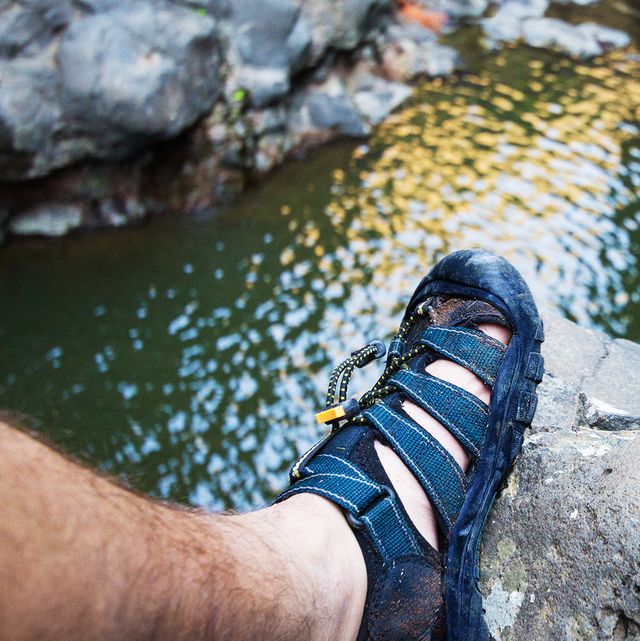
When calculating workout routines, it is essential to take your body type into consideration. Ectomorphs have the largest range of workouts. Endomorphs, on the other hand, have a smaller selection. This means that between them, there is a sweet place.
Ectomorphs enjoy the greatest variety of effective workouts
Ectomorphs should focus on basic movements that stimulate muscle growth and big moves. Avoid isolation exercises, which do not stimulate muscle growth. Do short, intense workouts 3-4 times per week. Bicep curls is an example of a highly effective exercise for ectomorphs. This exercise targets the upper arm muscles and is great for ectomorphs.
Even though ectomorphs may have difficulty gaining muscle mass with exercise and diet, they can still do so. They can't lift as much weight as mesomorphs and endomorphs, but they will still reap the benefits of working out.
Mesomorphs have a limited range of effective workouts
The body of a mesomorph is disproportionately muscular. They are not suited for doing isolation exercises such as lifting weights. This is a disadvantage but it is also a strength. They are able to gain muscle mass when lifting weights. Combining weight training with cardio exercise will yield the best results. Exercising excessively can reduce muscle tone. Therefore, it's best not to do too much cardio.

Carbohydrates, which are needed for glycogen synthesis, which creates energy, are important. You should eat a variety carbs, and preferably in moderation. The American Council of Exercise recommends that mesomorphs have a diet of approximately three-quarters carbs and one percent protein. Mesomorphs need to eat plenty of whole grain, which is rich in fibre as well as phytochemicals.
Endomorphs are limited in their ability to do effective workouts
When it comes time to exercise, endomorphs may have different goals and needs. Instead of focusing only on cardio, endomorphs should concentrate on building lean muscles mass and burning fat. Interval-based conditioning and high intensity interval training (HIIT), are two great ways to accomplish this. Interval training is short bursts of intense exercise that target fat loss.
Also, endomorphs may benefit from low-impact cardio exercises. Low-impact exercises are less damaging to the joints. Endomorphs may not be able to do high-impact exercises like running. Low-impact options include cycling, elliptical machines, and long walks.
Mesomorphs enjoy a sweet spot of all body types
Mesomorphs have a medium-sized frame, with more muscle than fat. Due to their natural strength, mesomorphs may be between overweight and underweight depending on their eating habits. Mesomorphs make a great choice when it comes to bodybuilding. Because they tend to gain weight, it is important that they exercise regularly and eat healthy.
Mesomorphs possess the perfect body for any type of exercise. Their genetic makeup allows them to increase muscle size quickly, while still maintaining a low body fat percentage. They develop all muscle types evenly. They have a moderate height and bone structure, making them perfect for cardiovascular training. Bo Jackson is a prominent mesomorph.

Workout generators that are based on body type can be difficult for Mesomorphs
Men with mesomorphic bodies can easily bulk up or lose weight. Eat plenty of protein and calories. You can also choose exercises that will help you lean out and pack on lean muscle mass. Consult a doctor or fitness expert if you're unsure about the best diets and exercises for you.
Mesomorphs typically have a medium-sized, bone structure with a muscular build. They also have a low amount of bodyfat. This body type has been described as naturally athletic. It was created by William Sheldon in 1940s. Mesomorphs are more athletic and have higher muscle-to–fat ratios.
FAQ
Which is more important: Exercise, diet, or sleep?
What you are looking to accomplish will determine the answer. The most important thing to do if you are looking to lose weight is diet. However, if you want to gain muscle mass, then exercise is the most important factor for building muscles. Because it affects your performance during the day, sleep is the most important factor.
Are there any exercises I shouldn't do?
Before you start any new exercise routine, it is important to consult your doctor. You may have injuries or other medical conditions that prohibit you from exercising in certain ways. Also, some activities require special equipment or training. Swimming, for example requires a swimming suit and access to the water.
What happens if I don't get enough sleep?
Your brain won't receive enough sleep if it doesn't get the signals it needs to regulate hormones, chemicals that regulate appetite and metabolism. This can lead to weight gain and excess eating. Sleep deprivation can also lead to excessive weight gain.
What is Resistance Training?
Resistance training involves using weights or other objects to perform specific movements. Lifting weights helps strengthen your arms, shoulders, chest and back, as well as your legs, hips, and core. Resistance training helps build muscle mass and bone density. It also promotes overall strength.
What is the value of good nutrition?
Our health and well-being depends on our nutrition. A healthy diet is one that includes fruits, vegetables whole grains, lean proteins, dairy, and legumes. Eating nutritious foods helps us stay fit and active, which leads to better overall health.
Do I gain weight from exercising?
Not at all. Exercising can help you maintain your current weight. You can build muscle mass and speed up your metabolism by exercising regularly. This means you won't store as much fat in your body.
How many hours should I sleep each night?
The recommended amount of sleep varies depending on age, gender, and individual needs. Most adults need 7 to 9 hours of sleep per day. Teenagers and young children generally need around 10 hours of sleep each night. This number decreases as they age.
Statistics
- In 2018, the World Health Assembly agreed on a global target to reduce physical inactivity by 15% by 2030 and align with the Sustainable Development Goals. (who.int)
- An estimated 110,000 deaths per year could be prevented (cdc.gov)
- Globally, 81% of adolescents aged 11-17 years were insufficiently physically active in 2016. (who.int)
- According to the Centers for Disease Control and Prevention, chronic diseases cause 7 out of 10 deaths in the U.S., and treating chronic diseases accounts for 86% of U.S. healthcare costs. (mana.md)
External Links
How To
How to stay fit during pregnancy
You experience many changes during pregnancy. Your metabolism slows down, and you eat less because you're growing a baby inside you. If you don't get enough rest, you might feel sick. But there are ways you can keep yourself healthy while still enjoying this exciting time in your life!
Before starting any exercise regimen, it's important to check with your doctor. Your doctor can help you decide which exercises are safe and which should be avoided. You should also eat healthy throughout your pregnancy. This includes eating plenty of protein, fiber, and iron. Third, try to drink lots of fluids. Water is particularly important when exercising, as sweat can lead to a loss of fluids. Also, care for your feet. Your feet should be dry all the time and you should wear shoes that support your feet. Morning sickness can be caused by eating small amounts of bread or crackers before you get out of bed. It could lead to nausea.
-
Eat Well. A healthy diet is important throughout your entire pregnancy.
-
Keep active. Daily exercise of at least 30 mins
-
Keep a healthy weight By eating smaller meals and snacks, you can lose weight.
-
Get Enough Sleep. Sleep should be at least 7 hours each night.
-
Manage Stress. Learn relaxation techniques.
-
Avoid Alcohol. It may cause miscarriage and birth defects.
-
Be gentle with your self. Be gentle with yourself.
-
Take Care of Yourself. You can have someone look in on you if necessary.
-
Relax. Do things that make YOU happy.